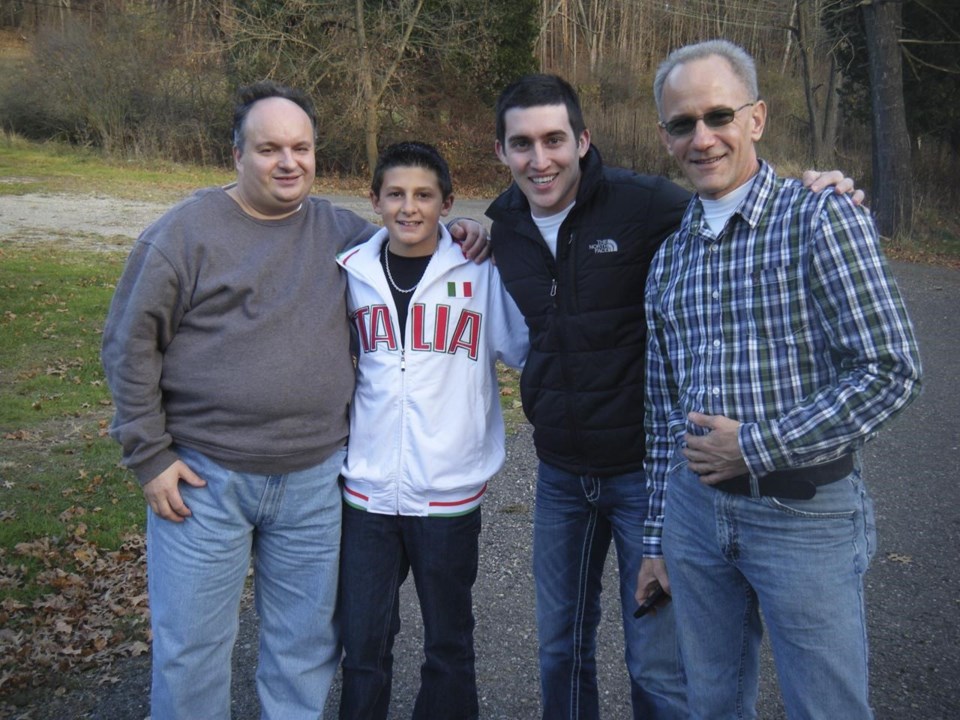Eleven days after 57-year-old Anthony Talotta arrived at a Pittsburgh jail, he died from what his family says was a treatable and preventable infection from a foot wound. Talotta, who had autism and developmental disabilities, had been brought to the jail after a fight with a staff member at the group home where he lived.
In a federal lawsuit filed Tuesday, Talotta's family alleges doctors and medical staff at the Allegheny County Jail provided substandard care. The lawsuit claims jail policies prohibiting prisoners with mental illness or developmental disabilities from being housed in the medical unit violate the Americans with Disabilities Act by creating a system that makes it harder for them to get adequate medical care.
The lawsuit also notes that at least 17 people died at the medically-understaffed jail in a two-and-a-half year timeframe from March 2020 to September 2022, the majority of whom had mental health or chronic medical needs.
"This lawsuit is intended not only to find full and fair justice for Anthony, but it is also intended to find justice for the individuals who came before him and took their last breaths at the Allegheny County Jail as well and to protect those who enter that jail after them,” said Alec Wright, an attorney representing Talotta's family along with attorneys at the Abolitionist Law Center.
The lawsuit names the Allegheny Health Network, which is the contracted jail medical care provider; Allegheny County and Medical Director Donald W. Stechschulte. The lawsuit also names treating physician Wilson Bernales, who had had his medical license revoked or suspended in eight states. The lawsuit further names the unknown staffing agency that screened and hired Bernales.
The lawsuit alleges negligence in hiring Bernales without thoroughly researching his license issues in other states. It also alleges denial or delay of medical care, lack of supervision and training, wrongful death and discrimination.
Allegheny County and the Allegheny Health Network both declined requests for comment.
Bernales, who now lives in Nevada, said he has never had any malpractice issues and called the medical license issues in other states “administrative concerns.”
The family's attorneys disputed Bernales' account of his license issues, noting several states in publicly available discipline proceedings questioned his competence and skill as a physician. In the complaint, they note one state board wrote Bernales “failed to meet his burden of proving that he is able to safely, skillfully and competently practice medicine.”
Attorneys for Talotta's family said the jail's medical staff was aware of both Talotta's injury, which included fractures, a torn ligament and blistering from burns, and that because of his autism and intellectual disabilities he was unable to communicate his medical needs or care for himself.
Jeff Lagrotteria, Talotta's cousin, said Anthony called him from the jail but never mentioned his injury.
“He just said he was scared and asked how he was going to get out of that place ... so that's what we were working on," Lagrotteria said, adding that no one from the group home or the jail told him about the injury, either. “For years, he was taken care of by the group homes, and there were no issues. As soon as he gets into the jail, he got treated so horribly he died within days."
Talotta was taken to a hospital twice as his injuries worsened, according to the lawsuit. He was ordered not to put weight on his foot, but jail staff removed a walking boot and took away his crutches because those devices were not allowed in the mental health unit.
The hospital also prescribed antibiotics and daily dressing changes and wound care. But the antibiotics were never provided, jail staff confiscated the medical supplies given to him by hospital doctors and jail medical staff never performed any wound care, the lawsuit alleges.
On Sept. 20, Talotta was found clutching his chest and unable to speak, from what attorneys assert was sepsis. Bernales gave Talotta a Benadryl for allergies and sent him back to his cell, where he was found a few hours later frothing at the mouth and unresponsive, according to medical records cited in the lawsuit. He was taken to the hospital where he died the next day.
Speaking to The Associated Press on Tuesday, Bernales challenged that narrative and the medical records, saying Talotta was allowed to keep the wound care supplies. He said no prisoners are allowed to have items like the boot or crutches since they could be made into weapons.
“It's not like a hospital. I can't just go to the patient's cell and provide care. If the corrections officers say we don't have enough staff to bring him out of his cell to get care, then I have to listen,” Bernales said.
Talotta did not have any brothers or sisters, and his parents spent most of their lives ensuring he would be taken care of when they died, setting up a trust so his needs were met. He spent his time with all of his cousins in their big Italian family, becoming the official sausage tier when they would gather to stuff homemade sausages. He also enjoyed going to the zoo or to the movies, getting most excited about the popcorn.
“Nothing can bring Anthony back," said cousin Tina Talotta. "But I just feel that if my aunt Lena was still here, she would want other people taken care of, that this never happen to anyone else.”
Claudia Lauer, The Associated Press



